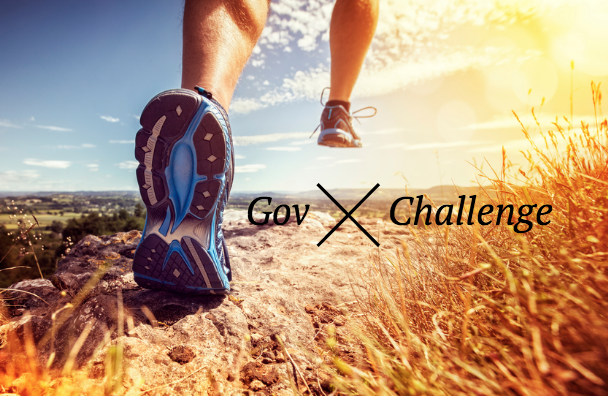If you’re anything like me, a good workout includes a short run and maybe lifting some weights… maybe. I have also on occasion been able to convince myself that it’s real exercise to move a cookie from the table to my mouth. But that’s just me.
On the opposite side of the spectrum is Robyn Benincasa, an adventure racer and firefighter from California. If you’ve never heard of adventure racing, that’s okay — I hadn’t either until last month. But at its core adventure racing is a multi-day, full contact team sport where teams of racers kayak, hike, climb, canoe and dive into some of the globe’s most difficult terrains, all in an effort to see which group is the strongest.
Here’s a clip if you want to see just how nuts this sport is. I am sorry in advance for the leeches.
Now, you may be wondering why I’ve spent two paragraphs talking about various forms of exercise. In a nutshell, it’s because Benincasa was the keynote at the National State Chief Information Officers annual conference. During her keynote, Benincasa explained that adventure racing actually taught her to be a better leader. And I promise, her tips could transform us all into better leaders… and maybe even better athletes.
“In adventure racing the goals are audacious, and constant change is the only thing your team can count on (aside from one another!) – which sounds an awful lot like government IT,” said Benincasa. “The only way to win is to focus more on the team than on the individual.”
Benincasa found six essential elements to being a great leader:
- Total commitment – “Commitment starts when the fun stops.” Let’s be honest; the start of projects are awesome, but the real work starts when the newness wears off. “In adventure racing that happens about the time your body starts to shut down. My team leader always told me you can cry as long as you keep walking. You can’t stop and have a pity party, you can acknowledge feelings, but you need to keep walking forward.”
- Team buildings see challenges vs roadblocks – “You can never let the pursuit of perfection hinder progress,” said Benincasa. “If we raced every race perfectly, we still wouldn’t win, because you can’t anticipate every single problem and you can’t always be 100 percent, but you can get through. You might have to take your core competencies and change the game…you might need to be agile.”
- Pain is mandatory; suffering is not – “Mile 80 of hiking through the African jungle hurts. Like really, really, really hurts. But if we stay positive we can get through. You know what doesn’t help at mile 80? Talking endlessly about how bad my foot hurts. Or worse, listening to someone else complain about their back pain. It doesn’t help. What helps is moving forward. It’s about thinking about what you can control and embracing that.”
- “We Thinking” – “This one is tricky because we don’t want everyone to think the same way. That doesn’t lead to new ideas, but what ‘we thinking’ does is take a goal that can’t be accomplished alone and brings the team into it. The “we think” idea is around a common mission or goal.”
- Ownership of the project – “In government, we must hire the inspired, because motivation is for now while inspiration is forever. We need to first discover our core needs. Ask for input. People embrace what they create. Value unique contributions and then build the right team.”
- Change leaders – “This one is particularly hard in government, but we need to allow for leadership by strengths, not titles,” she said. “We need to change up leadership styles and strengths depending on the situation. Don’t be locked into business as usual.”
For Benincasa, great leadership comes back to a Theodore Roosevelt quote: “Far better to dare mighty things, to win glorious triumphs, even though checkered by failure, than to take rank with those poor souls who neither enjoy much nor suffer much…in the great twilight that knows not victory nor defeat.”
What are your leadership tips?
